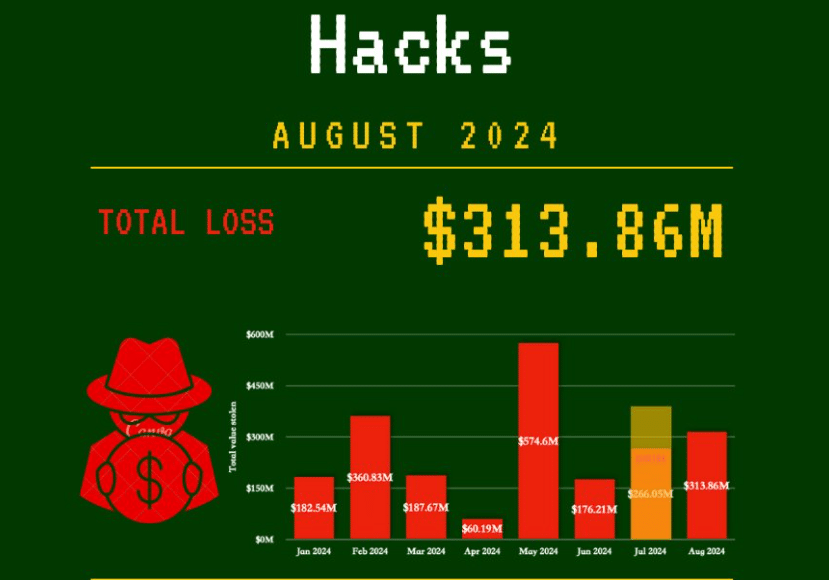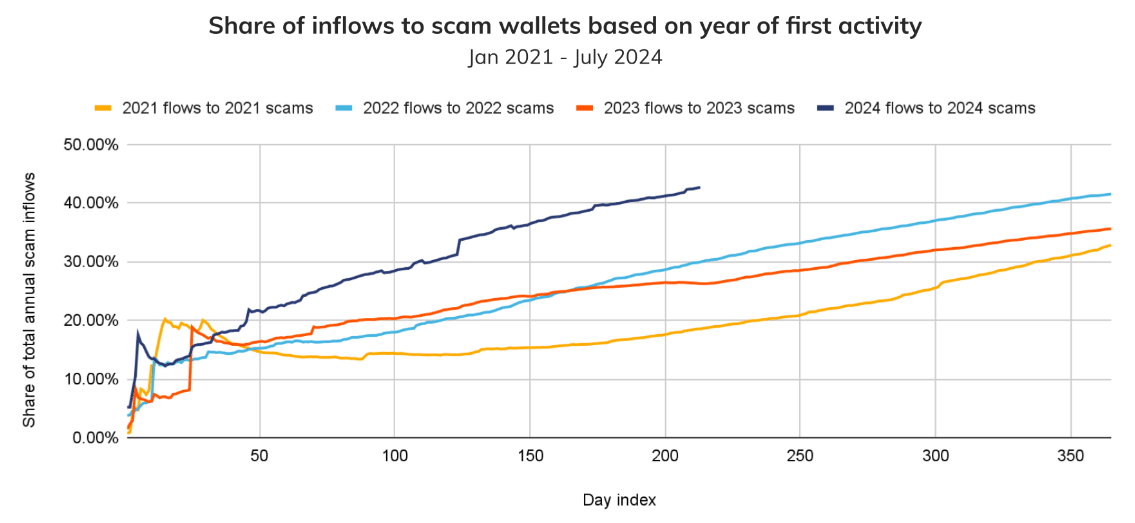- The crypto market lost $313 million in August through scams and hacks.
- Pig butchering scams remain the largest and most lucrative for criminals in 2024.
According to blockchain security firm Peckshield, the crypto market suffered over 10 hacks in August, leading to losses worth $313.86 million.
The monthly report stated that the loss was dominated by phishing (unauthorized transfers) attacks involving Bitcoin [BTC] and decentralized stablecoin Dai [DAI].
“The 2 largest hacks, both involving unauthorized transfers (#Phishing), accounted for 93.5% of the total stolen funds, amounting to $293.4 million.”


Source: Peckshield
The August loss was higher than July’s $266 million, primarily dominated by the WaziriX hack.
The centralized exchange WaziriX lost $230 million, exposing it to legal lawsuits from victims seeking to recover funds like CoinSwitch.
August ranks third in crypto scam losses
That said, August’s scam loss ranked third on a year-to-date basis. For context, May saw the highest stolen amount of $574 million, followed by February’s $360 million.
According to Peckshield’s semi-annual report, the crypto market lost $1.56 billion through hacks in the first half of 2024. DeFi was the largest victim, with Ethereum [ETH] and BNB Chain suffering the most.
“2024 H1 witnessed 200+ major hacks in the crypto space, resulting in ~$1.56b in losses. This marks a significant 293% increase from the same period in 2023 (w/ losses amounted to $480m). DeFi protocols remained primary targets, accounting for 59% of the total stolen value.”
Away from DeFi hacks, pig butchering scams have remained lucrative and prevalent in 2024, per the latest Chainalysis report. Part of the report read,
“Pig butchering is the largest revenue-generating scam type YTD. One Myanmar-based scam compound first observed on-chain in 2022 has netted at least $101.22 million so far this year.”
For context, pig butchering scams involve gaining users’ trust with fake promises of massive profits from crypto investments before swindling them.
This is similar to the technique of fattening pigs before slaughtering them.
According to the Chainalysis report, scammers have evolved from large Ponzi schemes to more nuanced campaigns like pig butchering. However, the report established that there were more new scams in 2024.
“Notably, 43% of YTD scam inflows have gone to wallets that became active this year. This trend is significant as the next highest year, 2022, saw just 29.9% of total YTD flows go to wallets that became active that year.”


Source: Chainalysis
That said, users should be careful with fraudulent crypto messages (phishing) or anyone promising massive crypto gains in a product or scheme without a clear yield or business model.

